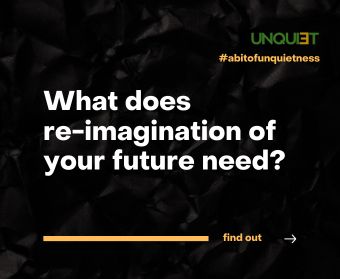“In every crisis, there is a transition… What a beautiful reminder that the things that interrupt our lives, that stop us in our tracks, can also be catalysts for the emerging self.”
Edith Eger, The Gift: 12 Lessons to Save Your Life
The Unspoken Bravery in Walking Away
We live in a world that glorifies perseverance. “Never give up,” we are told. “Keep pushing.” Grit, hustle, resilience—these are the currencies of personal success in modern narratives. And while there is immense value in persistence, there is a deeper, often overlooked courage: the courage to quit.
To quit is to admit a truth: something is no longer working. A path once right for us may have become unsustainable, misaligned, or simply wrong for the person we are becoming. Quitting—far from a failure—can be a catalyst for transformation. In the words of Edith Eger, it is often the interruption of our lives that invites the emergence of the self.
So why is quitting so hard?
Why Do We Stay Too Long?
One reason quitting is so difficult is that it forces us to confront emotional discomfort. Letting go of a job, a relationship, a goal, or even a belief often feels like betrayal of effort, time, and identity. We convince ourselves that quitting equates to losing, or worse, giving up on ourselves. But is it truly a loss when we reclaim space for something more aligned?
Eastern philosophies speak deeply to this. In the Tao Te Ching, Laozi reminds us:
“When I let go of what I am, I become what I might be.”
The wisdom here is quiet but powerful: quitting is not an act of abandonment—it is a return. A return to presence, to truth, to possibility.
What about the escalation of commitment?
Psychologists call it the “sunk cost fallacy” or the “escalation of commitment.” We keep investing time, energy, and emotion into paths that no longer serve us simply because we already have. Whether it’s a business that no longer brings joy, a career path that drains us, or a project that lost meaning, we continue not out of purpose but out of fear.
Ibn Tufayl, a 12th-century Andalusian polymath, offered a different model of courage. In The Art of Quiet Influence, his story illustrates the moral bravery of walking away from systems and circles he could not change. He quit not out of weakness, but out of a deeper strength: the ability to discern when influence was no longer possible.
Strategic Quitting: Knowing the Difference
Seth Godin, in his sharp book The Dip, makes an important distinction: sometimes quitting is not quitting at all—it’s strategy. He frames this with two metaphors:
The Dip is the tough but worthwhile part of a journey—worth pushing through.
The Cul-de-Sac is a dead-end—no matter how long you stay, nothing changes.
Courage lies in knowing where you are. Many of us are stuck in cul-de-sacs, believing they’re just another dip. Strategic quitting means recognizing when persistence is no longer noble but self-sabotaging.
Quitting as Self-Love
Quitting isn’t always a grand gesture. Sometimes it’s quiet: unsubscribing from expectations, closing a chapter with grace, stepping away from something that no longer nourishes.
To quit with courage is to listen deeply—to honour your intuition even when logic pushes back.
In Zen Buddhism, there is a term “mu” (无)—which roughly translates to “nothingness” or “non-being” often used to break down dualistic thinking and point towards a direct experience of reality beyond words or concepts. It challenges the mind to go beyond these categories and experience reality directly. Deriving insight from this concept with respect to quitting, sometimes, the answer isn’t about “whether to keep going or not,” but about stepping outside the binary and asking better questions altogether:
What choice honours my intention, my alignment, and my truth?
Resources to further explore :
- The Dip by Seth Godin
- The Art of Quiet Influence by Jocelyn Davis
- The Gift: 12 Lessons to Save Your Life by Edith Eger
- Quit by Annie Duke
- Quitting: A life strategy – The Myth of Perseverance―and How the New Science of Giving Up Can Set You Free by Julia Keller
If you enjoyed this article, please share it with your friends and family.
If you want to receive A Bit of Unquietness blog directly to your mailbox, please subscribe by joining our mailing list.

